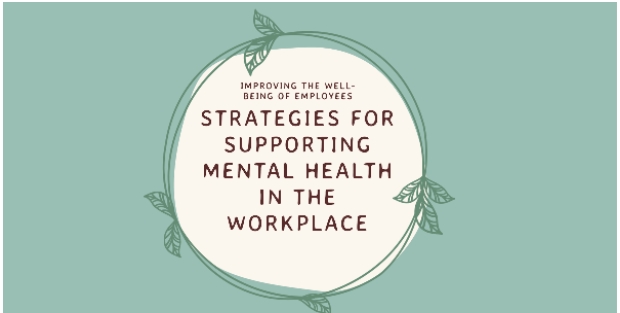
Mental Health in the Workplace: Strategies for Support and Improvement
Understanding the Importance of Mental Health in the Workplace
Mental health in the workplace is an issue that cannot be overlooked. It affects not only the individual’s well-being but also the productivity and harmony of the entire workforce. Recognizing the signs of mental health issues and addressing them promptly is crucial for creating a supportive work environment. This involves understanding that mental health is as important as physical health and requires equal attention and resources.
Dean Lee – Head of Marketing at Sealions, “It’s essential for companies to create an environment where mental health issues are not stigmatized but are addressed openly and with empathy. This can significantly enhance employee satisfaction and productivity.”
Creating a culture that values mental health begins with leadership. Leaders must be trained to recognize the signs of mental distress and know how to approach and support affected employees. This not only helps in early intervention but also fosters a culture of care and understanding throughout the organization.
Leadership plays a pivotal role in shaping the workplace’s approach to mental health. By leading with empathy and understanding, we can set a strong foundation for a supportive work environment.”
Implementing Effective Communication Channels
Effective communication is the backbone of any mental health strategy in the workplace. It’s about creating open lines of communication where employees feel safe to express their concerns and struggles without fear of judgment or repercussions. This can be achieved through regular check-ins, anonymous feedback systems, and creating a platform for open discussions about mental health.
Open and honest communication is key. It not only helps in identifying issues early on but also builds a sense of community and support among employees. Moreover, it’s important to provide training for all employees on how to communicate about mental health. This includes understanding what to say, what not to say, and how to listen effectively. Such training can demystify mental health issues and equip employees with the skills to support each other.
Pareen Sehat, Clinic Director of Wellbeings Counselling, emphasizes, “Training employees on mental health communication is crucial. It ensures that everyone is equipped to offer support and understanding, which is vital for a healthy workplace.”
Offering Comprehensive Support Systems
A comprehensive support system is vital for addressing mental health in the workplace. This includes access to counseling services, mental health days, and resources for stress management and resilience building. Employers should strive to provide a range of options that cater to the diverse needs of their workforce.
Providing a variety of mental health resources and support options is essential. It acknowledges the unique needs of each employee and offers them the necessary tools to manage their mental health.
Additionally, creating a buddy system or mentorship programs can offer more personalized support. These programs can help employees feel valued and understood, reducing feelings of isolation and stress.
Jessica Shee from iBoysoft reflects, “Mentorship programs can play a significant role in enhancing mental well-being. They offer a sense of belonging and support that can be incredibly reassuring during tough times.”
Promoting Work-Life Balance
Promoting a healthy work-life balance is crucial for mental health. This means setting realistic workloads, encouraging regular breaks, and respecting employees’ time outside of work. Employers should lead by example, demonstrating that it’s okay to take time off and prioritize personal well-being.
Nathan Richardson, CEO of Mexico Weight Loss Surgery, states, “A healthy work-life balance is non-negotiable. It’s the foundation of both personal well-being and professional success.”
Flexible working arrangements can also contribute significantly to a better work-life balance. Allowing employees to adjust their schedules or work from home can reduce stress and improve overall job satisfaction.
Flexibility in the workplace is a game-changer for mental health. It allows employees to work in a way that best suits their needs, leading to happier and more productive teams.”
Fostering a Supportive Workplace Culture
A supportive workplace culture is one where employees feel valued, respected, and part of a community. This involves regular team-building activities, recognizing and celebrating achievements, and creating a safe space for employees to share their thoughts and feelings. A culture of support and recognition goes a long way in boosting mental health. It creates a positive environment where employees can thrive.
It’s also important to have policies in place that support mental health, such as anti-bullying policies and accommodations for those struggling with mental health issues. These policies should be communicated clearly to all employees, ensuring everyone understands their rights and the support available to them.
Tiffany Payne, Head of Content at PharmacyOnline.co.uk, adds, “Clear policies on mental health support are essential. They provide a framework for action and demonstrate the organization’s commitment to its employees’ well-being.”
Conclusion: A Collective Effort Towards Better Mental Health
Improving mental health in the workplace is a collective effort that requires commitment from both employers and employees. By understanding the importance of mental health, implementing effective communication channels, offering comprehensive support systems, promoting work-life balance, and fostering a supportive workplace culture, organizations can create an environment where employees feel valued, supported, and empowered to reach their full potential. This not only benefits the individual but also enhances the overall productivity and success of the organization.



